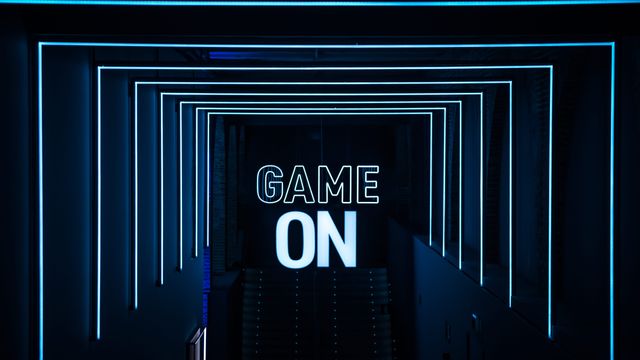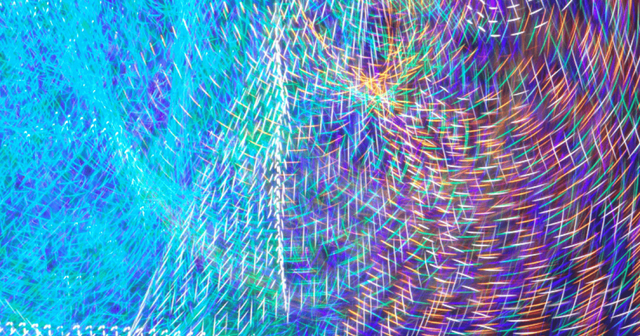
Nieuws
Ontvang inzichten in de nieuwste ontwikkelingen binnen intellectueel eigendom, uitnodigingen voor evenementen en relevante updates. Abonneer u op onze nieuwsbrief Perspectives.
Zoekopdracht
- Artikel
- Blog
- Webinar
- Whitepaper
- Klantervaring
- Evenement
BRONNEN (526)
 Hoe om te gaan met kostenbeslissingen van BOIP en EUIPOMerken en modellenHoe om te gaan met kostenveroordelingen bij beslissingen van EUIPO en BOIP in oppositieprocedures en nietigheidsprocedures van merken.Lees nu
Hoe om te gaan met kostenbeslissingen van BOIP en EUIPOMerken en modellenHoe om te gaan met kostenveroordelingen bij beslissingen van EUIPO en BOIP in oppositieprocedures en nietigheidsprocedures van merken.Lees nu Merkbescherming en marketingtrends: de zaak ‘Quiet Luxury’Commerciële concepten zoals ‘quiet luxury’ spreken sterk tot de verbeelding van het publiek, maar dat betekent nog niet dat ze ook als merk kunnen worden geregistreerd.Lees nu
Merkbescherming en marketingtrends: de zaak ‘Quiet Luxury’Commerciële concepten zoals ‘quiet luxury’ spreken sterk tot de verbeelding van het publiek, maar dat betekent nog niet dat ze ook als merk kunnen worden geregistreerd.Lees nu Een stem als merk: legt Mcconaughey AI het zwijgen op?Merken en modellenDe registratie van de iconische uitspraak “Alright, alright, alright” als geluidsmerk door Matthew McConaughey roept een fundamentele vraag op: kan het merkenrecht effectieve bescherming bieden tegen ...Lees nu
Een stem als merk: legt Mcconaughey AI het zwijgen op?Merken en modellenDe registratie van de iconische uitspraak “Alright, alright, alright” als geluidsmerk door Matthew McConaughey roept een fundamentele vraag op: kan het merkenrecht effectieve bescherming bieden tegen ...Lees nu Parallelimport en de uitputtingsleer: bescherming en begrenzing van het merkrechtMerken en modellenVoor merkeigenaren is controle over distributie, prijsstelling en merkreputatie essentieel. Parallelhandel – en in het bijzonder parallelimport – kan die controle onder druk zetten. In dit artikel lic...Lees nu
Parallelimport en de uitputtingsleer: bescherming en begrenzing van het merkrechtMerken en modellenVoor merkeigenaren is controle over distributie, prijsstelling en merkreputatie essentieel. Parallelhandel – en in het bijzonder parallelimport – kan die controle onder druk zetten. In dit artikel lic...Lees nu IE voor de gamingsector: een praktische gidsMerken en modellenBij de ontwikkeling van videogames wordt intellectueel eigendom (IE) vaak onderschat. IE is essentieel om creatieve ideeën te beschermen en commerciële waarde veilig te stellen. Zonder goede IE-strat...Lees nu
IE voor de gamingsector: een praktische gidsMerken en modellenBij de ontwikkeling van videogames wordt intellectueel eigendom (IE) vaak onderschat. IE is essentieel om creatieve ideeën te beschermen en commerciële waarde veilig te stellen. Zonder goede IE-strat...Lees nu- BlogVan schrijven naar sneller beslissenMerken en modellenOnze merkgemachtigden volgden een schrijftraining om IP-advies duidelijker, sneller en beslisbaar te maken. Zo profiteer jij van heldere communicatie en betere IP-beslissingen.Lees nu
 Het einde van de overgangsperiode voor UK-registraties die van EU-registratie zijn afgesplitstMerken en modellenMet het aflopen van de overgangsperiode voor door Brexit ‘gekloneerde’ merken in zicht, lopen gekloneerde Britse merken het risico te worden doorgehaald wegens niet-gebruik.Lees nu
Het einde van de overgangsperiode voor UK-registraties die van EU-registratie zijn afgesplitstMerken en modellenMet het aflopen van de overgangsperiode voor door Brexit ‘gekloneerde’ merken in zicht, lopen gekloneerde Britse merken het risico te worden doorgehaald wegens niet-gebruik.Lees nu ChatGPT Checkout: wat merkhouders nú moeten doenChatGPT Instant Checkout verandert online commerce. Ontdek hoe merkhouders hun merkbescherming, anti-namaak en GEO-strategie moeten aanpassen voor het AI-tijdperk.Lees nu
ChatGPT Checkout: wat merkhouders nú moeten doenChatGPT Instant Checkout verandert online commerce. Ontdek hoe merkhouders hun merkbescherming, anti-namaak en GEO-strategie moeten aanpassen voor het AI-tijdperk.Lees nu WhitepaperInternationaal uitbreiden: Zo benut u intellectueel eigendom voor groeiOntdek in onze whitepaper hoe u intellectueel eigendom effectief inzet als groeimotor voor uw internationale expansie.Nu downloaden
WhitepaperInternationaal uitbreiden: Zo benut u intellectueel eigendom voor groeiOntdek in onze whitepaper hoe u intellectueel eigendom effectief inzet als groeimotor voor uw internationale expansie.Nu downloaden FAQ AuteursrechtAuteursrechtHet auteursrecht beschermt een breed scala aan creaties (variërend van romans tot choreografieën en computerprogramma's), op voorwaarde dat deze werken origineel zijn en op een of andere manier tot ui...Lees nu
FAQ AuteursrechtAuteursrechtHet auteursrecht beschermt een breed scala aan creaties (variërend van romans tot choreografieën en computerprogramma's), op voorwaarde dat deze werken origineel zijn en op een of andere manier tot ui...Lees nu![[Webinar] Internationaal uitbreiden? Ontdek live hoe u met een sterke IE-aanpak uw internationale groei veiligstelt](https://novagraaf-staging.s3.eu-west-3.amazonaws.com/small_image_7a2879f56f.png) Webinar[Webinar] Internationaal uitbreiden? Ontdek live hoe u met een sterke IE-aanpak uw internationale groei veiligsteltOntdek in ons live webinar hoe u met een effectieve intellectueel eigendoms-aanpak uw commerciële groei over de grens veiligstelt.Bekijk nu
Webinar[Webinar] Internationaal uitbreiden? Ontdek live hoe u met een sterke IE-aanpak uw internationale groei veiligsteltOntdek in ons live webinar hoe u met een effectieve intellectueel eigendoms-aanpak uw commerciële groei over de grens veiligstelt.Bekijk nu Chrome Hearts spant rechtszaak aan tegen Neil YoungChrome Hearts spant rechtszaak aan tegen Neil Young over de naam van zijn begeleidingsband.Lees nu
Chrome Hearts spant rechtszaak aan tegen Neil YoungChrome Hearts spant rechtszaak aan tegen Neil Young over de naam van zijn begeleidingsband.Lees nu Griezelen of niet?Met Halloween voor de deur kan het leuk zijn te griezelen. Als het aankomt op merkbescherming zit je er echter niet op te wachten. Annerie Beentje bespreekt wat je kunt doen om je product goed te besc...Lees nu
Griezelen of niet?Met Halloween voor de deur kan het leuk zijn te griezelen. Als het aankomt op merkbescherming zit je er echter niet op te wachten. Annerie Beentje bespreekt wat je kunt doen om je product goed te besc...Lees nu Faillissement en doorstart: de rol van intellectueel eigendomFrédérique Verweij bespreekt de juridische aspecten van intellectueel eigendom bij een doorstart en wat u moet weten voor een succesvolle herstart.Lees nu
Faillissement en doorstart: de rol van intellectueel eigendomFrédérique Verweij bespreekt de juridische aspecten van intellectueel eigendom bij een doorstart en wat u moet weten voor een succesvolle herstart.Lees nu Van bergkaas tot streekbrood: Hoe bescherm je geografische oorsprongsproducten?Ontdek hoe producenten de herkomst van hun streekproducten kunnen beschermen. Van BOB-registratie tot alternatieve routes voor herkenbaarheid en waardering.Lees nu
Van bergkaas tot streekbrood: Hoe bescherm je geografische oorsprongsproducten?Ontdek hoe producenten de herkomst van hun streekproducten kunnen beschermen. Van BOB-registratie tot alternatieve routes voor herkenbaarheid en waardering.Lees nu Sunkist wint van KistIn deze zaak draait het om de vraag of het merk KIST verwarring kan veroorzaken met het merk SUNKIST bij gebruik voor frisdranken en aanverwante producten.Lees nu
Sunkist wint van KistIn deze zaak draait het om de vraag of het merk KIST verwarring kan veroorzaken met het merk SUNKIST bij gebruik voor frisdranken en aanverwante producten.Lees nu Rechtbank Gelderland deed uitspraak in de Tripp Trapp-zaakAuteursrechtTripp Trapp, een beroemde kinderstoel van de Noorse meubelfabrikant Stokke, is wereldwijd onderwerp geweest van vele juridische geschillen. Op 30 juni 2025 deed de rechtbank Gelderland uitspraak in ee...Lees nu
Rechtbank Gelderland deed uitspraak in de Tripp Trapp-zaakAuteursrechtTripp Trapp, een beroemde kinderstoel van de Noorse meubelfabrikant Stokke, is wereldwijd onderwerp geweest van vele juridische geschillen. Op 30 juni 2025 deed de rechtbank Gelderland uitspraak in ee...Lees nu Banaal of bekend: de rol van het onderscheidend vermogen in het merkenrechtDomeinnamenWaarom vond het EUIPO dat de HARIBO Goldbear geen onderscheidend vermogen heeft? En waarom hield ook het Gerecht die lijn vast? Lianne van Boxel bespreekt de argumenten en implicaties.Lees nu
Banaal of bekend: de rol van het onderscheidend vermogen in het merkenrechtDomeinnamenWaarom vond het EUIPO dat de HARIBO Goldbear geen onderscheidend vermogen heeft? En waarom hield ook het Gerecht die lijn vast? Lianne van Boxel bespreekt de argumenten en implicaties.Lees nu Van Oki Data naar Lost Mary: meer ruimte voor wederverkopers?Wat betekenen de nieuwe Lost Mary-criteria voor domeinnaamgeschillen? In deze analyse legt Koen de Winder uit hoe de stap van Oki Data naar Lost Mary wederverkopers mogelijk meer ruimte biedt, maar oo...Lees nu
Van Oki Data naar Lost Mary: meer ruimte voor wederverkopers?Wat betekenen de nieuwe Lost Mary-criteria voor domeinnaamgeschillen? In deze analyse legt Koen de Winder uit hoe de stap van Oki Data naar Lost Mary wederverkopers mogelijk meer ruimte biedt, maar oo...Lees nu BlogFAQ: Intellectueel eigendom en internationale marktontwikkelingWanneer een bedrijf nieuwe internationale markten betreedt, ligt de focus vaak op commerciële kansen en partnerschappen. Toch vormt intellectueel eigendom (IE) een minstens zo belangrijke succesfactor...Lees nu
BlogFAQ: Intellectueel eigendom en internationale marktontwikkelingWanneer een bedrijf nieuwe internationale markten betreedt, ligt de focus vaak op commerciële kansen en partnerschappen. Toch vormt intellectueel eigendom (IE) een minstens zo belangrijke succesfactor...Lees nu